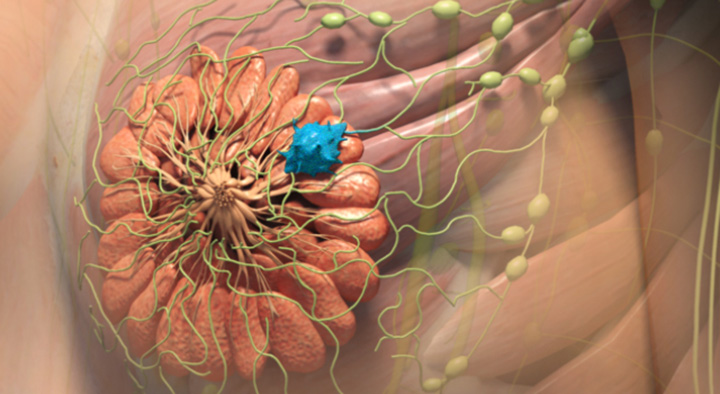Did you know that breast cancer does not always remain on the breast? Instead, the cancerous cells spread to other vital organs and become life-threatening at this stage. In fact, no one dies of breast cancer when it remains only on the breast. Breast cancer metastasis refers to the spread of breast cancer. Do you have questions about metastasized breast cancer? If so, know that you are not alone. Thankfully, today, there is more information about breast cancer metastasis in comparison to several decades ago thanks to years of extensive research.
What is breast cancer metastasis?
Metastasis is the process where cancerous cells in the breast spread to other parts in the body. Metastasized breast cancer, therefore, is synonymous with advanced breast cancer and stage 4 breast cancer. It is important to note that at this stage, it becomes increasingly difficult to treat breast cancer effectively as other parts of the body are also under attack.
When it comes to metastasis, there are really only two possibilities. Cancer may either spread at the same time of the initial diagnosis or months, even years after the initial cancer treatment. Both scenarios are of an advanced stage of breast cancer. When breast cancer recurs and spreads, the world of oncology refers to this as “recurrent” breast cancer. If some cancer cells survive radiation therapy or chemotherapy and are able to grow and spread further, breast cancer recurs.

Source: myilifestyle.com
How does breast cancer spread or metastasize?
The malignant cells spread from the breast to other parts of the body through the blood vessels or the lymphatic system. They may even travel to the furthest parts of the body. The breast cancer may be curable if it has only moved to the axillary lymph nodes under the arm. It, unfortunately, becomes incurable once it has metastasized beyond the lymph nodes to other vital organs. This stage of breast cancer metastasis is referred to as “distant” metastasis, which is a “systemic” disease. At this stage, it is quite difficult to wipe out the breast cancer by treating a particular spot. Essentially, the “whole body” needs to go through chemotherapy and hormonal therapy at this point. Moreover, the lack of a broad range of treatment options makes it hard to treat metastasized breast cancer at this stage.

Source: arabicherbalmedicine.com
Where does breast cancer spread to?
Breast cancer typically metastasizes to the lungs, liver, brain, regional lymph nodes, and the bones. According to estimations, about 70% of breast cancer patients die due to the spread of cancer to the bone. The other 10% die after breast cancer metastasis to the brain, making the brain the second most common site of metastasis. Note that even when breast cancer has spread beyond the breast, it is still breast cancer and is, therefore, treated as such. For instance, if it has metastasized to the brain, the course of treatment is that of breast cancer, not brain cancer, because the tumor originated in the breast.
What triggers the spread of breast cancer?
It is not yet very clear what exactly makes a particular breast cancer patient more or less susceptible to the proliferation of cancerous cells to other parts of the body. However, it is increasingly becoming common knowledge that part of the susceptibility is due to the “host factors,” characteristics of the non-malignant cells, and the general biological environment that surrounds the malignant breast tumor. Some people refer to this as the “pre-metastatic niche.” The cancerous cells spread to distant parts of the body due to the direct influence of bone-marrow-derived progenitor cells. Non-neoplastic “host cells” that are present within the tumor also contribute to breast cancer metastasis.
Recent research on breast cancer suggests that regulatory T cells may play a critical role in the process of metastasis. These cells are part of the body’s immune response system. Thus, some speculate that they produce a protein, RANKL, that may explain the acceleration of the metastasis of breast cancer to other body organs. RANKL influences the ability of the T-cells to spread breast cancer cells to distant parts of the body. Interfering with the interaction between the protein and the T-cells can significantly inhibit metastasis in the early stages.
What does the statistics say about breast cancer metastasis?
According to estimations, breast cancer will likely spread to other organs in 20-30% of all women initially diagnosed with it. Metastasis occurs in about 10% of the patients when they first get a diagnosis, the name of which is de novo breast cancer metastasis. After the completion of the initial treatment, about 40% of the patients will experience a relapse and develop distant metastasis. According to the 2011 survey, 16,200 women in the United States were living with metastasized breast cancer.
Breast Cancer Metastasis Survival Rates
The statistics are worrying as far as metastatic breast cancer survival rates go. Out of all the deaths due to breast cancer, 90% are as a result of metastasis. In fact, the survival rate is as low as 16 percent. About 20% of patients may live with metastatic breast cancer for more than five years. However, it is important to note that each case is always unique. Therefore, these statistics may not be that helpful. No one can accurately predict how one’s body will respond to metastatic breast cancer. Also, no one cannot be sure whether your body will recover from metastasized breast cancer. Every case is different.
How long does it take for breast cancer metastasis to occur after the initial treatment?
Breast cancer can take many forms. Aggressive forms of breast cancer, 10-15% of all diagnoses, will potentially undergo metastasis within three years after the first diagnosis. However, a bigger percentage of metastasis can occur 10 years or even longer after the initial treatment. Metastasized breast cancer or metastatic breast cancer treatment is usually through adjuvant chemotherapy or “systemic” therapy. Although the choice of the treatment differs from one breast cancer patient to another, some degree of adjuvant chemotherapy is usually the standard form of treatment for approximately 80% of the patients. According to statistics, treating and preventing the spread of metastatic breast cancer via adjuvant chemotherapy increases the life expectancy by 3-10%.
I hope that you were able to quench your curiosity about breast cancer metastasis. Clearly, a metastatic breast cancer diagnosis is not an outright death sentence. A proper treatment plan can inhibit the tumor from spreading in the early stages. Even if it has already spread beyond the breast, it is not hopeless.
Featured Image Source: patientresource.com
Sourced from: breast-cancer.ca


